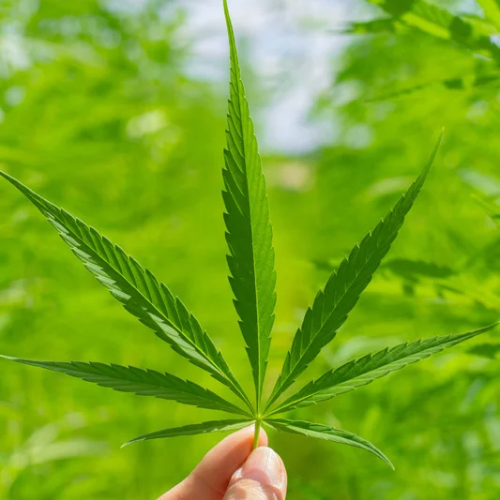
Supporting the Healing Process in Cancer with CBDA
Share
Introduction
Cancer is one of the greatest health challenges of our time, and as medical advances continue to be made, many are looking for complementary, natural ways to support the body’s healing process. One cannabinoid that has attracted great interest in this context is CBDA – cannabidiol acid. This non-psychoactive precursor to CBD has been shown in preliminary research to contribute to increased well-being in cancer patients, and its potential is both fascinating and promising. In this post, we explore the role of CBDA in cancer support and its possible therapeutic properties.
What is CBDA?
CBDA is a natural component found in raw hemp and is the acidic form of CBD. When hemp is heated – such as by drying or heating – CBDA is converted to CBD, a process called decarboxylation . However, in its raw, pristine state, CBDA carries unique properties that set it apart from other cannabinoids. It has no intoxicating effects, making it an appealing option for individuals who want to avoid psychoactive substances but still benefit from the power of cannabinoids.
Five Potential Benefits of CBDA for Cancer Patients
1. Antitumoral properties
Preliminary research suggests that CBDA may inhibit the growth of certain cancer cells. A notable study in the Journal of Natural Products (2020) found that CBDA has the potential to reduce cell proliferation, particularly in breast cancer cells. While more research is needed, these findings suggest that CBDA could become a part of future cancer treatment options.
2. Anti-inflammatory effect
Inflammation is a recurring factor in several cancers and can worsen the condition. CBDA has shown strong anti-inflammatory properties, making it an interesting substance in the fight against cancer-related inflammation. Studies published in Frontiers in Pharmacology (2021) show that cannabinoids, including CBDA, can effectively suppress the body's inflammatory processes.
3. Relief from nausea
Nausea and vomiting are common side effects of chemotherapy. CBDA has shown remarkable ability to reduce nausea in animal studies, sometimes even more effectively than CBD. A study in Nature (2021) reinforces this, pointing to CBDA as a natural and gentle alternative to traditional antiemetic drugs.
4. Synergy with other cannabinoids
CBDA doesn’t necessarily work best alone. When combined with other cannabinoids, such as CBD and THC, it can contribute to what’s known as the entourage effect – a synergistic interaction where the different cannabinoids enhance each other’s effects. A study in Molecules (2021) showed that CBDA combined with other cannabinoids may have increased therapeutic efficacy, opening up the door to more tailored solutions.
5. Emotional and mental support
Beyond physical symptoms, cancer is a deeply emotional journey. Cannabinoids like CBDA can help relieve stress, anxiety, and depression, which is especially valuable for patients undergoing long-term treatment. According to Cannabis and Cannabinoid Research (2020), cannabinoids can support psychological well-being, thereby improving quality of life.
Safe Use and Medical Consultation
It is important to emphasize that even natural substances should be used with caution. Cancer patients should always consult a doctor or specialist before including CBDA in their treatment routine. This is especially important if you are already taking medication, as cannabinoids can interfere with certain medical treatments.
Closing Reflection
CBDA is a natural, powerful and versatile cannabinoid with the potential to complement traditional cancer treatment. Through its anti-inflammatory, antiemetic and possibly antitumor properties, it offers an interesting alternative for those seeking a more holistic approach. Although the research is in its infancy, the initial results are promising. With the right guidance and knowledge, CBDA can become a valuable part of a broader support program for cancer patients – both physically and emotionally.

